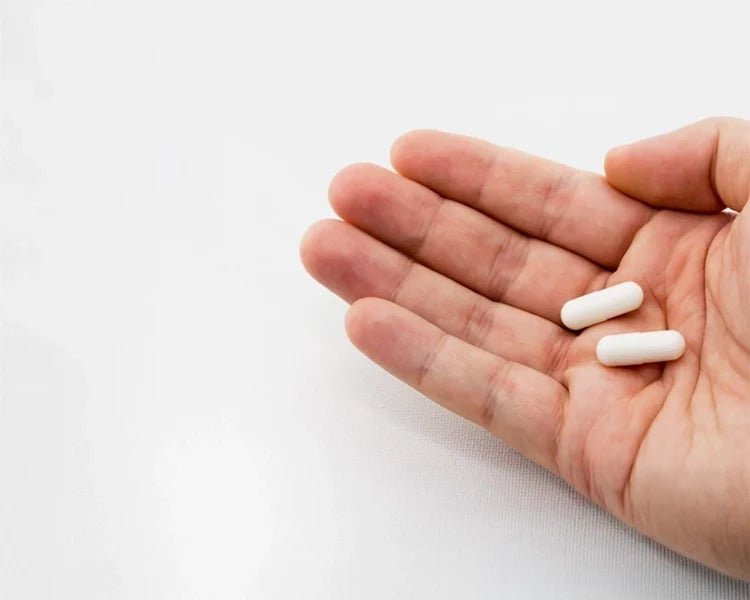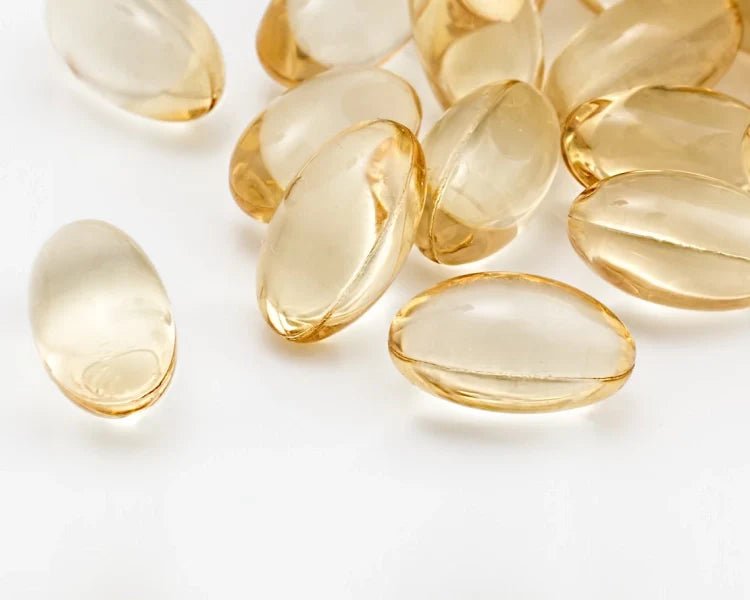Education
The role of physical activity in cancer prevention
Exercise can increase motivation to change lifestyle, improve aerobic capacity, improve physical fitness, control fatigue and improve quality of life [1], and this is just a part of their beneficial effects on the human body at all ages. It is estimated that almost half of cancer cases can be prevented by changing lifestyle, including physical activity [2], which is one of the four pillars of health. In a report by The World Cancer Research Fund (WCRF) published in 2020, the organization indicates that it plays a significant role in cancer prevention [3] . The main benefits of physical activity include regulating body weight, improving the efficiency of the circulatory and respiratory systems, as well as strengthening muscles and bones. Blood flow and tissue oxygenation are also increased, which translates into greater energy and vitality. Additionally, exercise has a real impact on mental health because regular exercise can reduce symptoms of depression, anxiety and stress by releasing hormones that can improve mood and feelings of overall well-being. Physical activity also improves cognitive functions, i.e. memory, concentration and the ability to focus, and significantly increases the quality of sleep by regulating the circadian rhythm. Regular exercise can help you fall asleep faster and enable deeper sleep, and it also lowers blood pressure, reducing the risk of heart disease. The multi-year European Prospective Investigation into Cancer and Nutrition (EPIC) study of over 500,000 people found that regular physical activity was associated with a lower risk of many types of cancer, such as colorectal cancer, breast cancer, pancreas and endometrial cancer [4]. A meta-analysis based on 170 studies confirmed that regular physical activity is associated with a reduced risk of colorectal cancer. It was observed that people engaging in regular physical exercise had a 24% lower risk of developing this type of cancer compared to people leading a sedentary lifestyle [5]. A study published in the British Journal of Cancer and conducted by the European Prospective Investigation into Cancer and Nutrition - EPIC found that regular physical activity can reduce the risk of breast cancer in postmenopausal women. Women who performed at least 7 hours of moderate physical activity per week had a 13% lower risk of developing breast cancer compared to those who were physically inactive [6]. Systematic physical activity, which can be freely chosen from a wide range of possibilities, from walks in nature, through team games, to individual training in the gym, provides great support in cancer prevention. It is a permanent element of a healthy lifestyle, which is modified depending on possibilities, needs and preferences. In addition to the obvious physical benefits it brings, it has a real impact on improving mood and well-being. Its beneficial effect on the body is multidimensional, so it is worth including it permanently in your weekly plan. Zuzanna Pilipiuk Qiaoyun Wang, Wenli Zhou, (2020) Roles and molecular mechanisms of physical exercise in cancer prevention and treatment, J Sport Health Sci. 2021 Mar;10(2):201-210. doi: 10.1016/j.jshs.2020.07.008. Epub 2020 Jul 30. Christine M Friedenreich, Charlotte Ryder-Burbidge, Jessica McNeil, (2021). Physical activity, obesity and sedentary behavior in cancer etiology: epidemiologic evidence and biological mechanisms, Mol Oncol. 2021 Mar;15(3):790-800. doi: 10.1002/1878-0261.12772. Epub 2020 Aug 18. Steven K Clinton, Edward L Giovannucci, Stephen D Hursting, (2020). The World Cancer Research Fund/American Institute for Cancer Research Third Expert Report on Diet, Nutrition, Physical Activity, and Cancer: Impact and Future Directions, Żuławski, W., Rutkowski, A., & Dziki, A. (2015). Influence of physical activity on the risk of colorectal cancer in the population of the European countries. Contemporary Oncology, 19(1), 7-13. Keum, N., & Giovannucci, E. (2019). Global burden of colorectal cancer: emerging trends, risk factors and prevention strategies. Nature Reviews Gastroenterology & Hepatology, 16(12), 713-732. Steindorf, K., Ritte, R., Eomois, P. P., Lukanova, A., Tjonneland, A., Johnsen, N. F., ... & Schütze, M. (2013). Physical activity and risk of breast cancer overall and by hormone receptor status: the European prospective investigation into cancer and nutrition. International Journal of Cancer, 132(7), 1667-1678.
Learn moreThe impact of cancer on sexuality
Cancer can have a very diverse impact on a person's sexuality. It depends on many factors, including the type and stage of the disease, the type of treatment used and the individual characteristics of the patient and psychological support - both from specialists and the patient's relatives. Cancer may affect physical and hormonal changes in the body, decreased energy, chronic fatigue, changes in appearance, stress, emotional changes or self-esteem, body image and interpersonal relationships. All the areas indicated above may have a greater or lesser impact on sexuality. Some types of cancer and treatments can lead to physical changes that may affect sexual function. They can, but they don't have to - remember that each case is different, so generalizations are subject to a large margin of error. However, to use specific examples, surgery to remove genital organs may have a significant impact on experiences related to sexuality. Other treatments - such as radiotherapy (especially in the genital area) or chemotherapy - may be equally important and may result in pain, vaginal dryness or erection problems. The desire and appetite for physical intimacy and sex may also decrease [1] . Some types of cancer and their treatment may affect hormone levels. Examples of treatments that influence hormonal changes include removal of the ovaries, surgical treatment of breast cancer or targeted hormonal therapy. This type of treatment may affect both the level of desire and sexual function [2] . Cancer and its treatment usually lead to decreased energy and increased fatigue. It is often accompanied by changes in appearance, such as weight loss, hair loss, or scars after surgery. It is worth remembering that sexuality has various dimensions and may also include building a sense of security and attractiveness. Sex is not prohibited for cancer patients - unless it is a cancer related to the reproductive organs. Undoubtedly, it may be difficult for loved ones to realize that a person suffering from cancer often feels unattractive and defective. The change in self-perception affects the feeling of increasing stress and deepening depression of mood. This is a difficult moment both for the sick person and for their loved ones. A person suffering from oncology has every right to closeness - it is worth talking about their needs and concerns [3] . It may be helpful to formulate messages as direct as possible - e.g. "you can touch me", "don't be afraid to touch me, it doesn't hurt me", "it's important to me, I want you to keep touching me", or "I want you to as little as possible has changed between us. I have to go to the doctor, I have to take medications, but let everything else be as it used to be, I need your touch as much as before (or even more than before).” Cancer may affect self-esteem, body image, interpersonal relationships, and perception of one's sexuality. Some patients may feel a sense of loss, fear of rejection, shame, difficulty communicating with a partner or difficulties in finding their way in a new reality after the diagnosis. It is important that patients talk to their doctors about all problems related to sexuality - there are various strategies, therapies and treatment methods that may be helpful in dealing with the new challenges presented by the disease. Many patients also use the help of psychologists, sexologists or patient support groups [4] . Problems related to sexuality affect the quality of life and should not be treated marginally. Sexual health is important, and when problems arise, it is worth contacting specialists and asking for help. Monika Kaszuba [1] Dębska G., Samochowiec J. (2017). Sexual problems in the course of cancer. Psychiatria Polska, 51(6), pp. 1127-1138 [2] Lemańska A., Skrzypulec-Pinta V., Łuszczak M, et al. (2013). Sexual function in women after breast cancer treatment. “Medycyna Ogólna i Nauki o Zdrowiu”, 19(4), pp. 395-400 [3] Kowalski P., Filipiak M., Krajewski P. (2016) . Reproduction and sexuality of oncology patients. Nursing Polish, 2(60), pp. 175-178 [4] Sobolewski M., (2018). Sexuality of patients with cancer of the reproductive organs - recommendations of the European Society of Oncology (ESMO) and other scientific societies. Ginekologia Polska, 89(2), pp. 103-107
Learn moreAnti-cancer diet – is there a miracle diet?
Society's growing awareness of the impact of lifestyle on health means that when we are at increased risk of cancer or when we experience oncological disease in our immediate environment, we look for a way to help protect ourselves against cancer. In addition to realizing the need for early diagnosis, one of the first associations is often a change in the current lifestyle, including eating habits. And rightly so, because according to data published by the World Health Organization, as many as 30-40% of all cancer cases could be avoided by giving up stimulants (nicotine, alcohol), improving the quality of the diet, increasing physical activity and maintaining a healthy weight. The Cancer Research Foundation (WCRF) also drew attention to dietary factors as important in cancer prevention, which devoted as many as 8 out of 10 main recommendations for cancer prevention to elements related to diet. Similarly, the World Cancer Report 2020 emphasizes that both the quantity (e.g. energy value, dietary fiber content) and the quality of consumed food products and meals are important in dietary cancer prevention. Is there one universal anti-cancer diet model? When looking for the answer to this question, many people get lost in the thicket of information available on the Internet or popular mass media. A large number of publications on this topic, repeated dietary myths and nutritional recommendations not supported by scientific evidence make it difficult to decide on the optimal diet. It also happens that you may come across nutritional recommendations that are not only unjustified, but may even pose a threat to the health of the people using them, such as in the case of highly restrictive diets that eliminate selected dietary macronutrients or significantly deviate from the principles of the so-called rational nutrition. Therefore, first of all, it should be clearly noted that an anti-cancer diet is a way of eating that, on the one hand, provides ingredients with a potential protective effect, and on the other - limits or even eliminates those with proven carcinogenic effects. This is a diet model that is not specific and limited only to cancer, but serves to improve the health of the general population, e.g., at the same time protects against the development of obesity, cardiovascular diseases, or type 2 diabetes. In contrast, highly individualized dietary assumptions support for oncological therapy (because there is no diet that in itself "cures cancer"), the main principles of the anti-cancer diet apply in many clinical situations, can be used by a wide range of recipients and, importantly, are safe. Principles of an anti-cancer diet in a nutshell The current state of scientific knowledge allows us to conclude that the most beneficial in this respect is a diet pattern based mainly on plant products, rich in whole grain products, non-starchy vegetables, fruits and legumes. Plant products are the main source of substances with anti-carcinogenic properties and reducing the risk of recurrence - dietary fiber, vitamins and minerals, and bioactive natural substances, including: phytoestrogens, polyphenols, phytosterols and monoterpenes. WCRF recommends that plant products be consumed in at least 5 main meals and that their amount per day should not be less than 400g. In the case of dietary fiber, its daily intake should not be lower than 30g. According to WCRF, animal products should be significantly restricted in the diet - mainly red meat. Its consumption should not exceed 3 servings per week (350-500 grams per week). The consumption of processed meat should be reduced to the minimum necessary, and if possible, this type of food products should be completely excluded from the diet. In fact, the anti-cancer diet does not involve giving up dairy products, poultry or fish, but it clearly indicates that their share in the daily menu cannot dominate the amount of plant products. Similarly to a "healthy, rational diet", people who want to reduce the risk of cancer are recommended to significantly limit or even give up the consumption of processed foods high in saturated and trans fats and sugar. Excluding sweetened drinks from the diet is another feature of the anti-cancer diet. These drinks, by providing simple sugars, also increase the amount of calories consumed and result in an increase in body fat. Many previous studies have proven that some cancers, including cancer of the oral cavity, esophagus, stomach, pancreas, liver, large intestine, breast and endometrium, may result from excess body weight, hence it is also important to ensure that the energy value of the diet was tailored to the real needs of the body. In the case of alcohol, complete abstinence is recommended. Bearing in mind that no food product contains all potentially anticarcinogenic ingredients, make sure to diversify your diet. Only by eating a variety of foods can you provide complementary ingredients with anti-cancer potential. To sum up, it is worth emphasizing once again that there is no single, ideal for everyone and 100% effective model of an anti-cancer diet, but there is strong evidence that a diet based on products of plant origin (various colored vegetables and fruits, whole grain products, legumes) , in which the supply of meat (especially red), processed products (e.g. instant food, fast food, rich in E-additives), simple sugars and alcohol is eliminated, may protect against the development of cancer. The goal of effective dietary health prevention is to permanently improve eating behavior, so when looking for the perfect anti-cancer diet, do not expect a "miracle diet", but focus on a well-thought-out, rational one, tailored to your capabilities and goals, and long-term improvement of eating habits in the direction of the principles described above. Małgorzata Moszak World Cancer Research Fund/American Institute for Cancer Research. Diet, Nutrition, Physical Activity and Cancer: a Global Perspective. Continuous Update Project Expert Report 2018 Key TJ, Bradbury KE, Perez-Cornago A, et al. Diet, nutrition, and cancer risk: what do we know and what is the way forward? BMJ. 2020 Mar 5;368:m511. Wild CP, Weiderpass E, Stewart BW, editors (2020). World Cancer Report: Cancer Research for Cancer Prevention. Lyon, France: International Agency for Research on Cancer. Available from: http://publications.iarc.fr/586. License: CC BY-NC-ND 3.0 IGO.
Learn more





